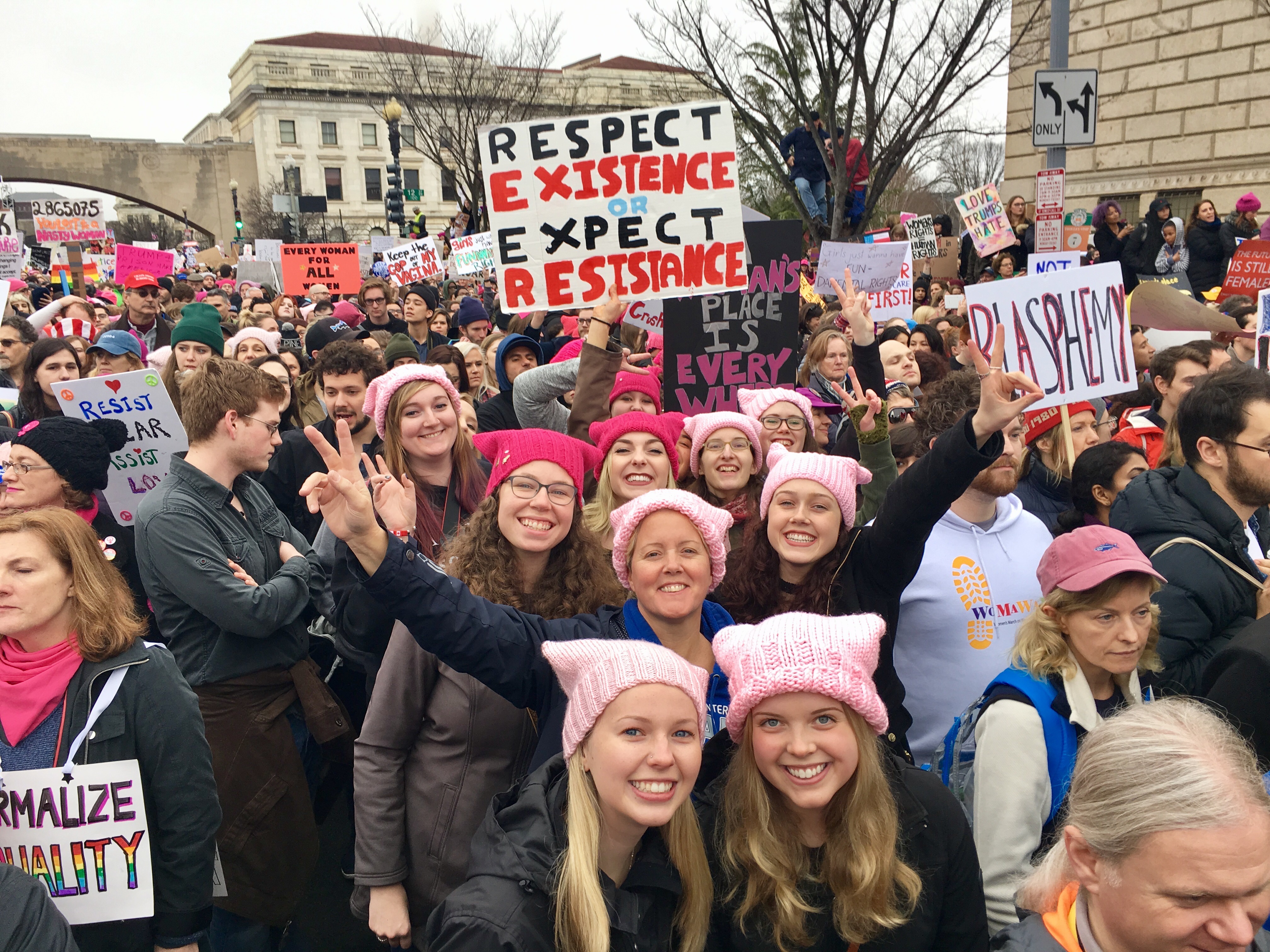
On January 21st, I travelled to Washington, DC with nine other social work students and our professor, Dr. Susan Hillock, to participate in the Women’s March on Washington. We are part of the first cohort of students from Trent University’s new ground-breaking Bachelor of Social Work program. When we learned about the march, we knew we had to take action and have our voices heard. Upset by political opinions and the long history of oppression faced by marginalized groups, we loaded into two cars and drove ten hours to Capitol Hill where we collected with like-minded activists and took our stand.
In a crowd of 500,000 people, I felt completely safe. I could feel love and strength everywhere, and I was proud of every protester that I met. I read signs that said; “girls just want to have fun-damental rights,” “I am a nasty woman,” and “I can’t believe I’m still protesting this”. A kind supporter of our group crocheted us all pink “pussy hats” to wear to the march. I was amazed by how many marchers were wearing these hats. A sea of pink power!
During the rally I met two middle school children who identified as part of the LGBTQ community. I listened as they shared their stories of coming out, being bullied at school, and gender identity. This was their first protest and they were so excited to be part of the revolution. Their energy and strength was so inspiring to me and I was instantly reminded how important this march is. I wasn’t just marching for any one issue, such as women’s reproductive rights or equal pay for equal work; I was marching for every individual who is oppressed under our white, middle-class, male dominated society.
It was exciting to take the theory we have been learning out of the classroom and into action. As a group of passionate social work students, we identify as structural feminists.
However I did not fully understand this theoretical framework until I actually did something about it. Structural feminism “acknowledges the various structural barriers and oppressions that women and queer individuals face and acknowledges that each person is affected differently by this intersection of oppressive structures” (Mullaly, 2007, p.211).
After participating in this revolution, I have come to realize that we must do more than just acknowledge oppression, we have to do the work towards changing patriarchy through collectivization and social action. This is not just a political debate; this is a societal issue.
This revolutionary moment in time was something that our group did not want to miss out on. I am very thankful that I had the opportunity to travel to Washington and participate in this march. Witnessing this event first hand was truly inspiring. I can feel the power and strength of this movement globally and throughout the Peterborough community. I cannot wait to see where this movement will take us and I hope we continue to strive towards an
anti-oppressive, equitable society.
